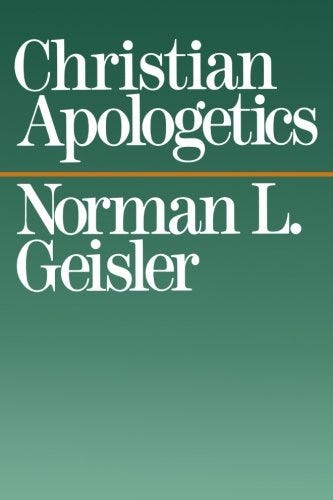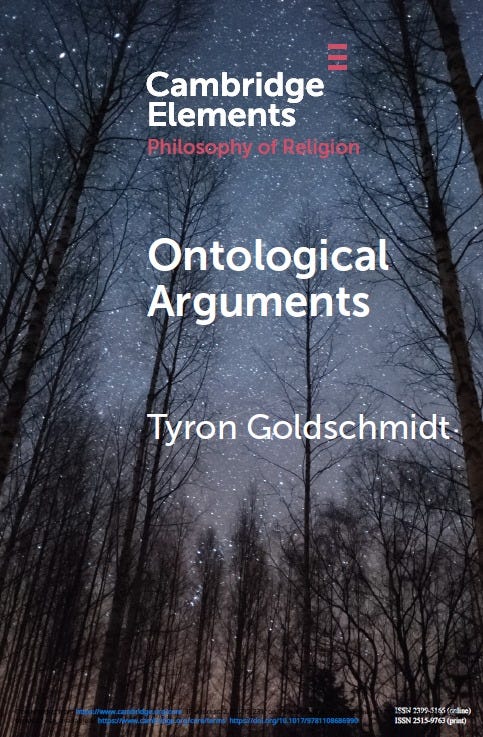Note: Dr. Rob Bowman continues his series on the 30 most important apologetics books in church history. See his earlier posts in previous weeks of our weekly emails.
#23: Norman L. Geisler, Christian Apologetics (1976)
Norman Geisler (1932–2019) authored, co-authored, and edited nearly a hundred books on apologetics, philosophy of religion, ethics, theology, and biblical studies, making him a key figure in evangelicalism. A philosopher by training, Geisler taught apologetics and theology at several major evangelical seminaries for over fifty years. He co-founded Southern Evangelical Seminary in Matthews, North Carolina, in 1992, and Veritas International University in Santa Ana, California, in 2008. Geisler was also well known for his criticisms of various evangelical scholars over the years whose views he found to compromise evangelical views of Scripture or the nature of God.
Although Geisler was theologically an evangelical Protestant, in philosophy and apologetics he was a convinced Thomist (advocate of the approach of Thomas Aquinas). His approach to apologetics proceeded in two steps. First, the apologist builds a case for theism by demonstrating how it conforms to rational criteria used to evaluate the truth claims of competing worldviews. Having shown that theism is true according to these criteria, the apologist may then present the evidence for the historical truth claims of Christianity. Geisler set out this method in full in his 1976 textbook Christian Apologetics, which is divided into three parts: apologetic method, theistic apologetics (the first step), and Christian apologetics (the second step).
In Part One, Geisler evaluated seven epistemological approaches to the question of God and concluded that they have inadequate tests for truth. In their place he proposed that for worldviews unaffirmability should be the test for falsehood and undeniability the test for truth. Unaffirmability occurs when a statement is directly or indirectly self-defeating, whereas undeniability applies to statements that are definitional, tautologous, or existentially self-confirming.
In Part Two, Geisler argued that only theism is affirmable and undeniable. He examined competing worldviews (deism, pantheism, panentheism, atheism) and argues that they all fail the test for truth. He then presented a cosmological argument with undeniable premises (something exists; nothing comes from nothing) “that leads inescapably to the existence of an infinitely perfect and powerful Being beyond this world who is the current sustaining cause of all finite, changing, and contingent beings” (258).
In Part Three, Geisler argued that Christianity is the true theistic religion. Since he was shifting from judging among worldviews to judging among theistic religions, he moved away from the criteria of unaffirmability and undeniability to the probabilistic criterion of systematic consistency (comprehensiveness, adequacy, consistency, coherence). Geisler argued that given the truth of theism, miracles are possible, and we can know that they have occurred in history. From these premises Geisler proceeded to make the case for Christianity. He argued that the New Testament writings are authentic and reliable, and then he applied historical methods to those documents to show that Jesus Christ claimed to be God and that he vindicated this claim by fulfilling Old Testament prophecies and rising from the dead. The most systematically consistent interpretation of these facts is that Christ was, in truth, the Son of God. Finally, Geisler argued that on the basis of Christ’s divine authority, we should accept Christ’s teaching that Scripture is the word of God.
Note: This series originally appeared in the Apologetics Book Club group on Facebook and was revised for publication as a book, Faith Thinkers: 30 Christian Apologists You Should Know (Tampa, FL: DeWard, 2019). The book includes an introduction, additional quotes from each of the 30 books, readings for each author, and a list of other recommended readings. For a free excerpt from the published book, please visit https://faiththinkers.org.
— Rob Bowman Jr. is an evangelical Christian apologist, biblical scholar, author, editor, and lecturer. He is the author of over sixty articles and author or co-author of thirteen books, including Putting Jesus in His Place: The Case for the Deity of Christ, co-authored with J. Ed Komoszewski. He leads the Apologetics Book Club on Facebook.
Free Book
For the next two weeks, download free the newest book in the Cambridge Elements Philosophy of Religion series, Ontological Arguments, by Tyron Goldschmidt. All of the books in this series are free for a short period when they’re first published.
Subscribe for only $2.50 per month!
Subscribe to The Worldview Bulletin and receive a master class in worldview training, delivered monthly directly to your inbox. Learn from Christian philosophers and apologists Paul Copan, Paul Gould, David Baggett, Christopher Reese, and others, and enjoy news and resources available only to subscribers. Receive a year’s worth of equipping for only $2.50 per month, and help support our work of preparing believers to proclaim and defend the Christian worldview. There’s no obligation and you can easily cancel at any time.





